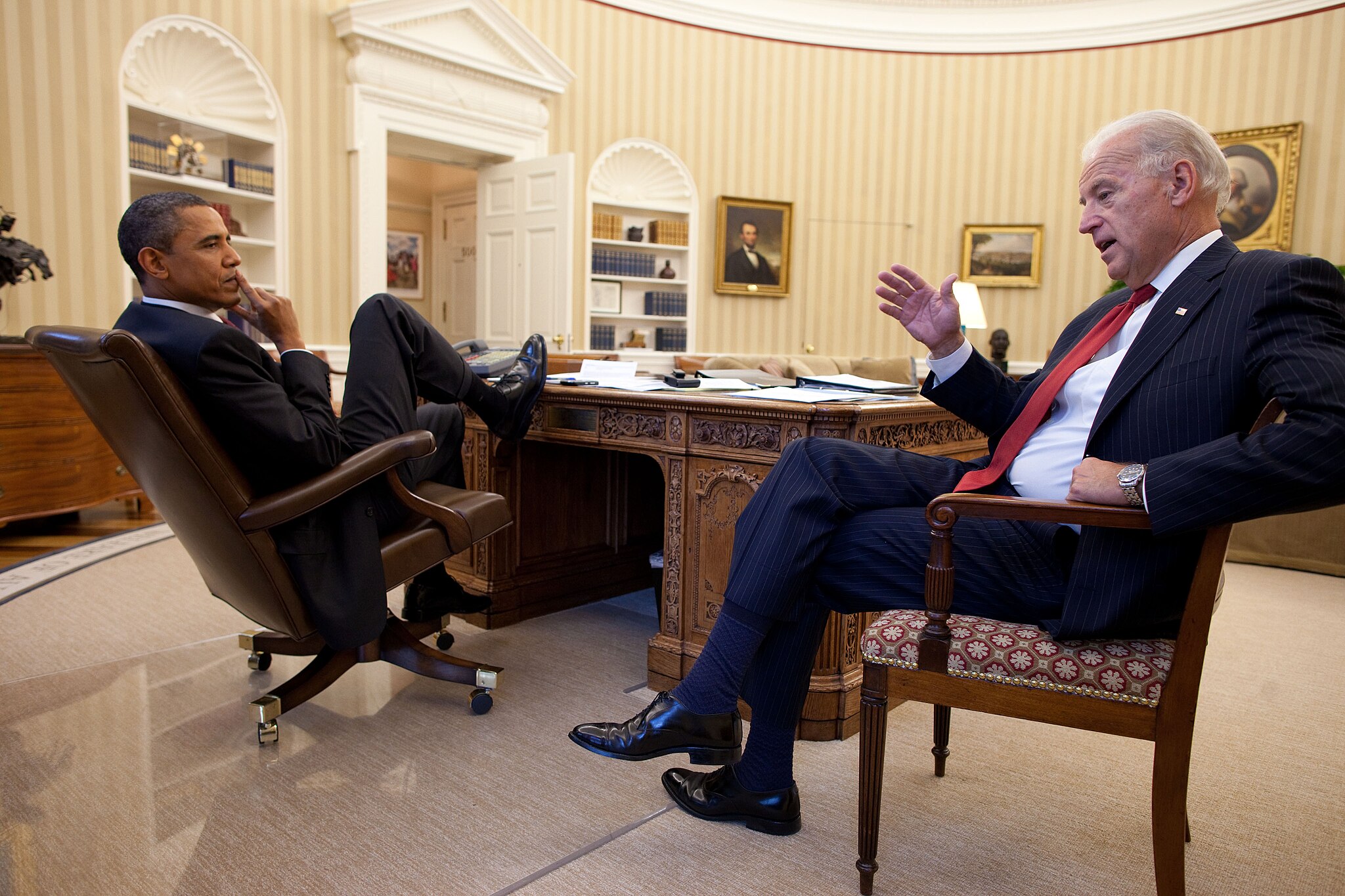Biden awarded $50M to self-dealing activist – Washington Examiner
In teh final weeks of President Joe Biden’s management, approximately $1 billion in grants were distributed to various nonprofit organizations across the U.S., including a notable $50 million awarded to the Tribal energy Consortium (TEC), a little-known charity based in New Mexico. This grant, aimed at supporting a climate programme under the Inflation Reduction Act, has stirred controversy as the TEC reported almost no revenue in the preceding years, raising questions about its financial legitimacy.
The Trump administration is currently investigating this grant due to concerns about the TEC’s connections to another nonprofit that has previously faced scrutiny for financial mismanagement. The TEC was formed to advocate for energy and mineral development and secured this funding through a competitive process.
Critics highlight rising conflict-of-interest issues, notably involving Roger fragua, the TEC’s principal officer, who is also the executive director of the Flower Hill Institute, another charity that has encountered financial accountability issues. The Flower Hill Institute was recently audited and found to have poor internal controls, including inappropriate contracting practices.Experts suggest that the Department of Energy must conduct a thorough review of the $50 million grant to prevent potential mismanagement and restore public trust.
The controversy around the TEC and its leaders emphasizes the need for vigilant oversight of federally funded programs, especially when nonprofit organizations are involved in energy and environmental initiatives.
In final days, Biden awarded $50 million to self-dealing charity leader
EXCLUSIVE — During President Joe Biden‘s last 20 days in office, his administration issued at least $1 billion in grants to hundreds of nonprofit groups scattered throughout the United States. A slice of that pie, $50 million, was awarded by the Department of Energy to a little-known charity in New Mexico called the Tribal Energy Consortium.
The $50 million grant, for a climate program under the Inflation Reduction Act, Biden’s signature 2022 spending law, is, on paper, an unbelievable windfall for the Tribal Energy Consortium. The charity posted just under $50,000 in revenue in both 2022 and 2023, IRS data show.
But now, along with other Energy Department grants under Biden, the Trump administration is investigating the $50 million handout, the agency told the Washington Examiner. The grant has not yet been disbursed to the awardee and could be cut, according to an official briefed on the situation.
That investigation will take into account how the TEC shares close ties to another tax-exempt organization and federal grantee with a history of financial mismanagement, the Washington Examiner has learned.
“The Department of Energy is conducting a department-wide review, which includes funding such as grants and loans, to ensure all activities are consistent with President Trump’s executive orders and priorities,” said Ben Dietderich, a spokesman for the Energy Department.
‘Damages public trust’
Located in Jemez Pueblo, federally recognized Indian tribal land that is home to around 3,400 people, the TEC formed two years ago to advocate energy and mineral development. Its members include the Arizona-based Navajo Nation Oil and Gas Company, Missouri River Resources, as well as tribes in Colorado, New Mexico, Oklahoma, and other states, according to the TEC’s website.
In June of last year, the Energy Department posted a funding opportunity online through its Office of Fossil Energy and Carbon Management, with the TEC taking home the $50 million award through a competitive process.
The funding, which would be doled out for a one-year term, was awarded to the TEC to “empower tribal communities to reduce methane emissions on tribal-owned-and-operated marginal conventional wells and at oil and gas facilities on tribal lands,” federal records show. Biden’s Inflation Reduction Act authorized the release of hundreds of millions of dollars to reduce methane emissions from the production and transport of coal, natural gas, and oil.
However, nonprofit tax experts say it is crucial that the Trump administration conducts rigorous vetting of the $50 million grant before it disburses, particularly because of the TEC’s ties to another grantee that faced scrutiny for financial mismanagement.
The TEC, according to federal records, counts its principal officer as Roger Fragua. Fragua, a former Enron Corporation manager who works on tribal development projects, wears different hats.
He is also the founder and executive director of the Flower Hill Institute, a Jemez Pueblo-based charity focused on climate change and agriculture-related initiatives. And, according to financial disclosures, the Flower Hill Institute was found through an independent third-party audit mandated by the government in 2022 to have “material weaknesses in internal controls.”
That’s in part because Fragua’s group did not test to see whether anyone besides a trio of companies tied to its board members fit the criteria to be contractors, the documents say. One of the paid companies, Cota Holdings, is a limited liability corporation led by Fragua. It reeled in $285,082 from the Flower Hill Institute in 2022 and was also listed as a contractor on the charity’s 2023 tax forms.
Cota Holdings shares an address in New Mexico with the Flower Hill Institute, as well as the TEC, the $50 million awardee, public records show.
According to tax experts, it’s a clear conflict of interest for leaders of charities to selectively award contracts to their own companies. Fragua’s Cota Holdings was paid as a contractor in 2022 though he was not paid as a board member — raising possible questions about its compliance with IRS rules. The IRS has strict rules concerning who may be considered independent contractors versus employees, with the distinction having notable tax implications for both employees and charities.
“A board member voting to end their own lucrative, multiple six-figure contract with the same charity they are responsible for overseeing seems unlikely, even if it would be in the charity’s best interest for them to do so,” said Laurie Styron, the CEO of Charity Watch. “Unless the consultants are offering some kind of incredible discount for services and these services could not be reasonably obtained elsewhere from a disinterested provider, charities really shouldn’t engage in these kinds of contracts.
“It just looks bad,” Styron told the Washington Examiner. “It damages public trust.”
Fragua did not respond to a request for comment. The other independent contractors tied to board members were also paid hundreds of thousands of dollars combined, tax forms show.
But apparent self-dealing isn’t the only issue outlined in the audit for the group linked to the TEC, whose website is NDNEnergy.org, a domain corresponding to a since-dissolved LLC that counted Fragua as its president.
The Flower Hill Institute also overbilled the Department of Agriculture, an agency that awarded it more than $10 million in 2022, the audit documents said.
“Flower Hill has been billing the U.S. Department of Agriculture 100% of its annual expenses in
equal monthly amounts whether the total amount billed was expensed or not,” the charity said in documents filed with the IRS.
The Department of Agriculture told the Washington Examiner it reviewed a corrective actions plan by the Flower Hill Institute to address its management issues.
“USDA required that the Flower Hill Institute provide a reconciliation timeline for the overpayment of $186,089 under a budget line item for ‘communications & grants technical manager,” said a USDA spokesperson, noting that the charity “reconciled the overpayment.”
The taxpayer-backed Flower Hill Institute was found through the audit to be out of “compliance with federal requirements when entering into procurement contracts as well as not meeting suspension and debarment requirements by potentially contracting with a suspended or debarred vendor.”
Patrick Sternal, an attorney and former tax law specialist at the IRS, agreed that the Flower Hill Institute’s contractor payments give the appearance of self-dealing and raise important conflict of interest questions.
As a whole, given the audit’s findings and the group’s ties to the TEC awardee, it is pivotal that the Energy Department investigate the $50 million handout to ensure internal controls are in place to avoid possible mismanagement, Sternal said.
“If they’re savvy, they would follow up and confirm and make sure the funds would be used for what they’ve been given for,” Sternal said.
The Flower Hill Institute and the TEC did not respond to requests for comment.
" Conservative News Daily does not always share or support the views and opinions expressed here; they are just those of the writer."




